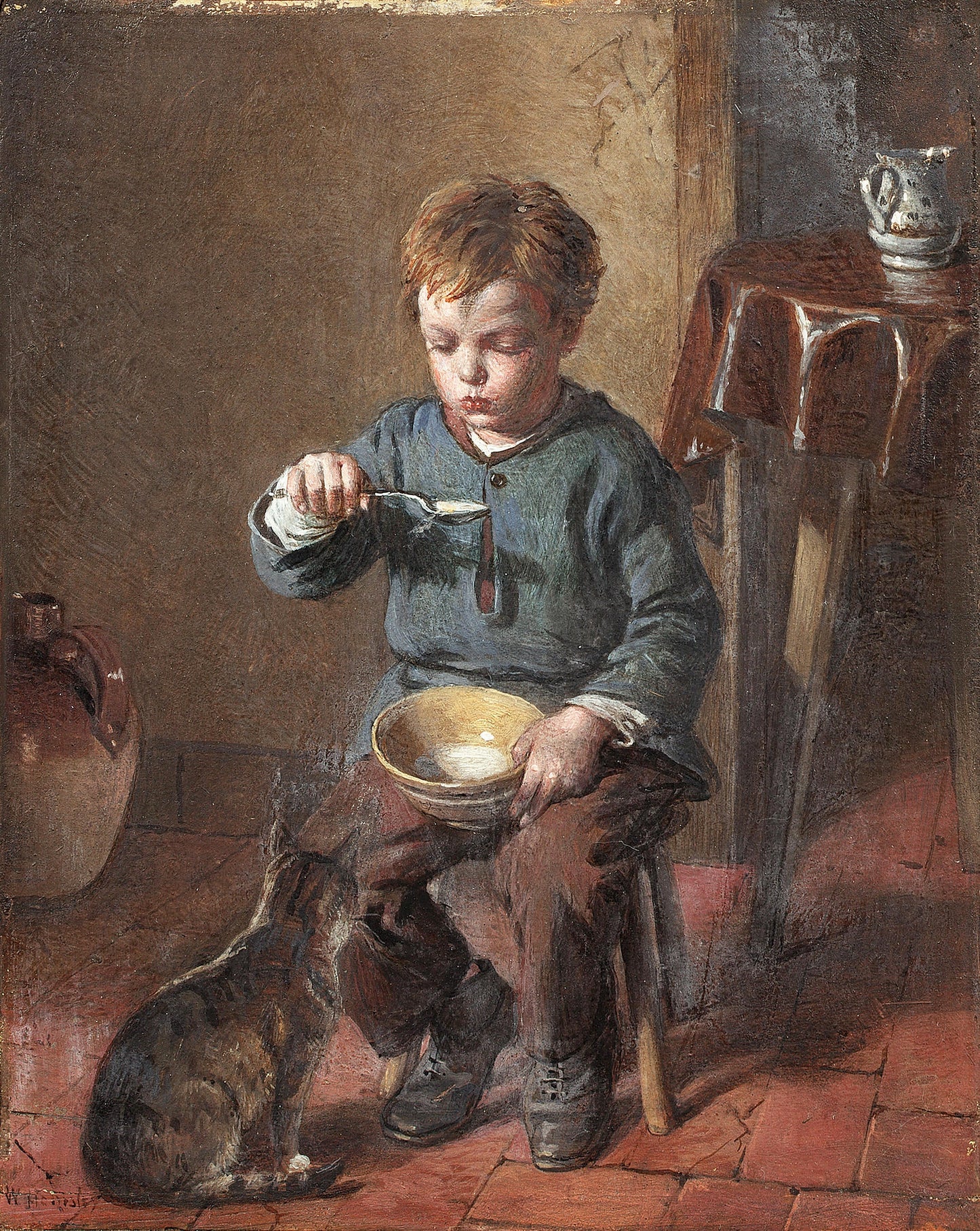Samuel Johnson once wrote that if an epicure could wish themselves anywhere to have the first meal of the day, they would transport themselves to Scotland for breakfast. The Scots excel at breakfast. Setting aside the excellence of smoked salmon, Scottish breakfast tea, heather honey, and Scottish back bacon -- consider porridge. Scottish bard Robert Burns is known for his fond feelings about haggis, but the poet was a big fan of porridge, too, and he wrote about it in a few places, calling it "The halesome parritch, chief o Scotia's food." Admittedly, Johnson may have loved a Scottish breakfast, but he wasn't perhaps as enthusiastic about oats as Burns, having famously denigrated the grain as being fit mainly for horses. But Johnson paid oats and oatmeal, and the Scots who sustained themselves on them, a compliment when he said: "Such food makes men strong like horses, and purges the brain of pedantry." Purging the brain of pedantry was no small achievement in Johnson's view. The link between the Scottish character and the Scottish diet has long been a subject of fanciful speculation; many have said that a spartan sensibility and powerful industriousness have their roots in the humble and nutritious staples of the Scottish kitchen. Porridge is a perfect example of these qualities.
The key to cooking porridge is that it only requires water, salt, oats and patience. Serve or ladle with milk or cream.


